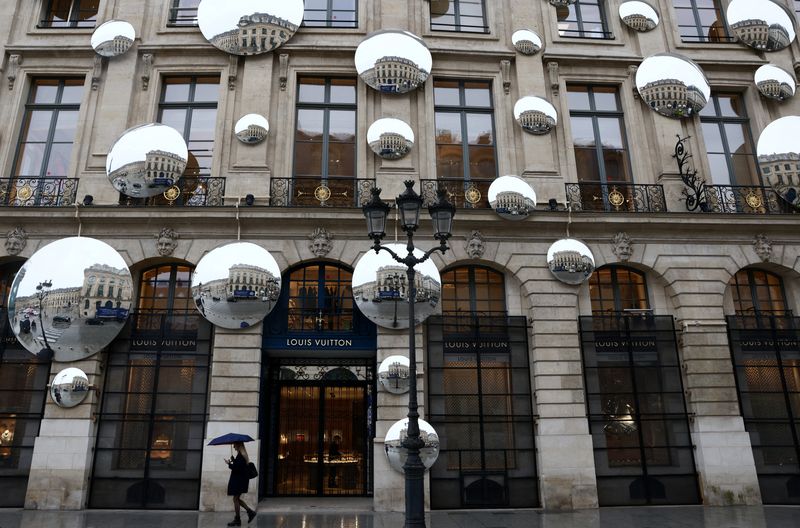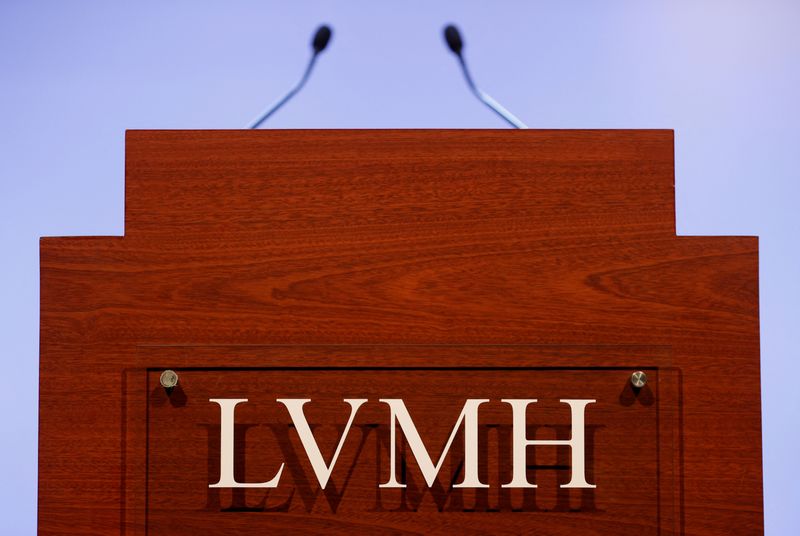PARIS (Reuters) - LVMH's shares slumped on Wednesday to their lowest level since December after the French luxury group reported slower third-quarter sales growth, providing evidence that inflation and economic turmoil are curbing a post-pandemic spending spree.
Luxury companies' shares have come under pressure in the face of a Chinese slowdown and uncertainty created by rising interest rates in Europe and the United States.
Shares in LVMH, which in September lost its crown as Europe's most valuable listed company, were down by around 6% in early trading, set for their worst day since March 2020.
Shares of rivals such as Kering (EPA:PRTP), Hermes, Swatch, Richemont and Burberry were also hit.
LVMH, whose labels include Louis Vuitton, Dior and Tiffany, had reported on Tuesday a smaller than expected 9% rise in third-quarter revenue, marking a rare miss for the world's largest luxury goods company, which had routinely outpaced expectations with strong double-digit growth in recent years.
LVMH is facing slowing demand for high end goods in the United States and Europe, where rising prices have prompted shoppers — especially younger generations — to pull back from a post-pandemic spending spree, while the recovery in China has been uneven.
"LVMH in our view remains ... among the names that should navigate this ongoing volatility relatively better; but with currently negative earnings momentum and uncertain outlook, we see limited scope for absolute re-rating in the short-term," wrote JP Morgan in a research note.
The slowing trend in Europe, where LVMH sales growth slowed from 19% in the second quarter to 7% in the third quarter, which was flagged by the company during its earnings call on Tuesday, would impact the wider industry, JP Morgan forecast.
Shares in Gucci-owner Kering traded down around 2.5%, while Hermes shed around 2.4%.
"An end to the roaring 20s," Berenberg analysts said as they cut their target price for LVMH.
"Our lowered forecasts reflect softer H2 momentum and normalised growth in outer years," Berenberg added.
Investors have been questioning the appetite for shares in the luxury goods sector as the recovery in China, a big growth driver for sales of luxury fashions, has been slower than previously hoped.

Some $175 billion has been knocked off the value of 10 of Europe's leading luxury good stocks since the end of March, as China's recovery has been rocky and growth is slowing, while high inflation and rising interest rates are forcing U.S. shoppers to tighten their purse strings.
The outlook for next year "remains muddied," said Piral Dadhania, analyst with RBC, predicting that downward earnings revisions for the sector would be likely to continue.
